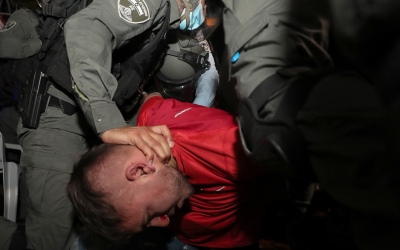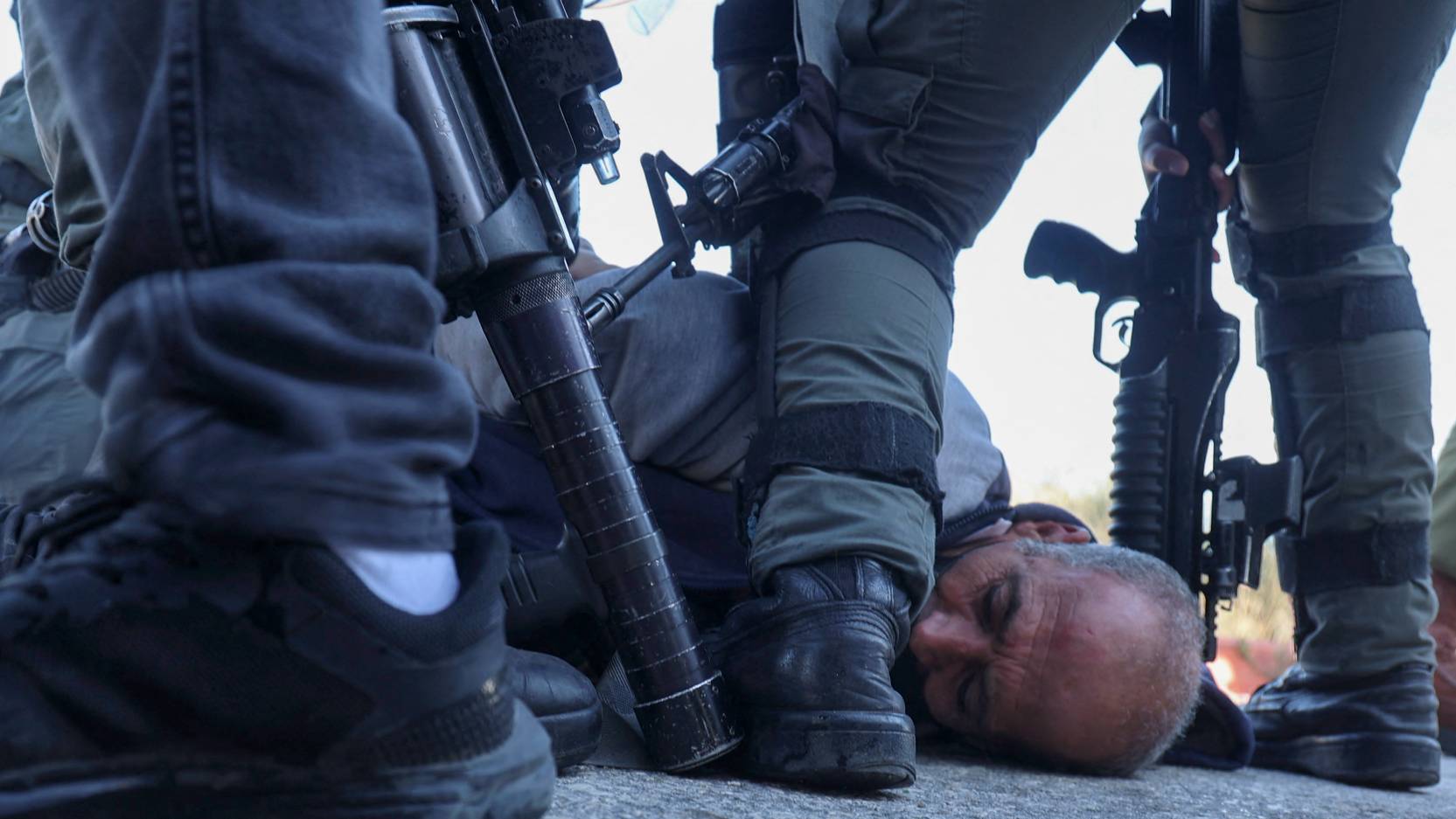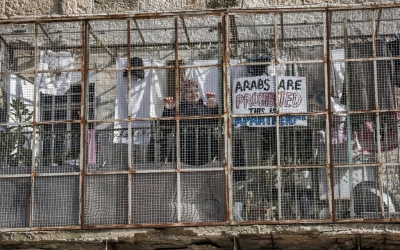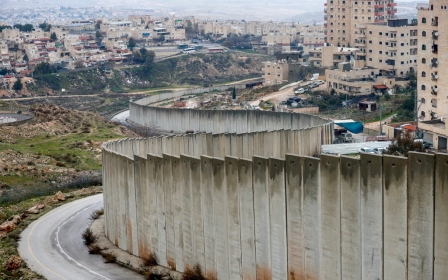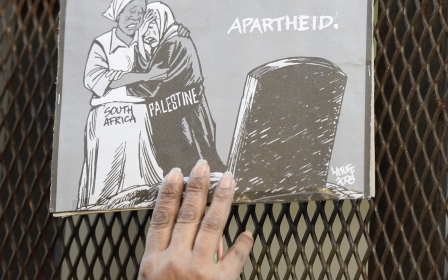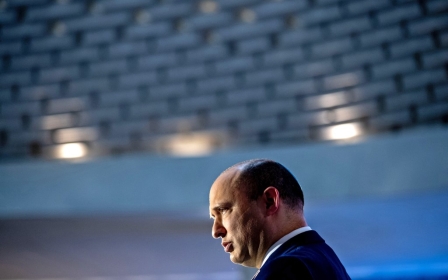Amnesty apartheid report: Why Israel fully deserves its place as a pariah state
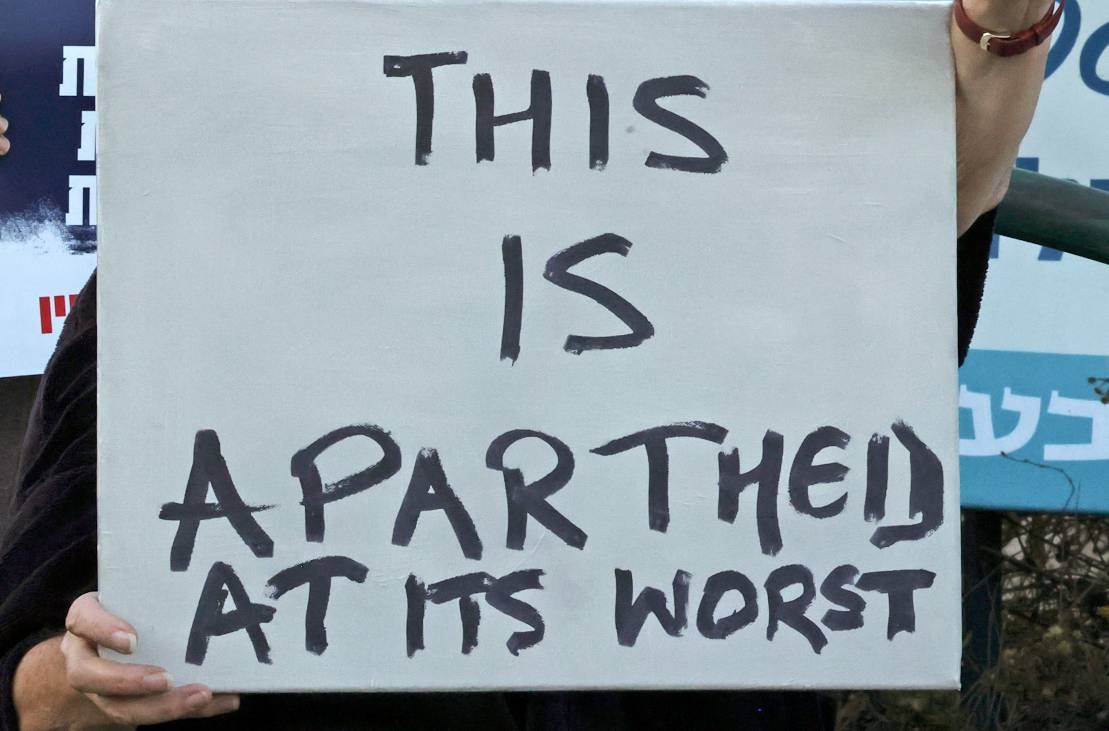
No one is breaking any ground by describing Israel as an apartheid state. Palestinians have been saying this for decades.
Amnesty's report marks a turning point in the world’s perception of the regime to which over seven million Palestinians are being subjected
One of the earliest uses of this legal term is to be found in a groundbreaking monograph written by Syrian Palestinian academic Fayez Sayegh (1922-1980) in 1965. Half a century later, former US president Jimmy Carter's best-selling book about the conflict was entitled "Peace Not Apartheid". The late and much missed Archbishop Desmond Tutu railed against apartheid practised by the Israeli state.
B'Tselem, Israel's leading human rights group, declared Israel an apartheid state a year ago. Human Rights Watch followed suit a few months later, as did Yesh Din, another Israeli human rights organisation, which concluded that "the crime against humanity of apartheid is being committed in the West Bank".
The Palestinian human rights groups Al Haq, Addameer, and Al Mezan have been calling Israel an apartheid state for decades. But the fact that Amnesty International has now said it in plain and unambiguous terms is historic.
It's not just the fact that Amnesty is a community of human rights activists 10-million strong. Nor is it the fact that Amnesty is globally recognised. Its report marks a turning point in the world's perception of the regime to which over seven million Palestinians are being subjected from the river to the sea, and a similar number of Palestinians in the diaspora.
A sign of its significance was the wild reaction that Amnesty's report got from Israel and pro-Israel groups in Britain and the US.
A wild reaction
Having tried and failed to stop the publication of the report, Israel described it as false, biased and antisemitic. For Foreign Minister Yair Lapid, Amnesty was "another radical organisation which echoes propaganda without seriously checking the facts".
Lapid should have read the report. Its 280 pages are the product of four years of research, meticulously fact-checked by an organisation that has established a track record for caution and balance on this conflict. To this day, Amnesty refuses to take a position on the occupation and is criticised by Palestinians for that.
Lapid accused Amnesty of being selective, of picking on Israel. That, too, is easily dismissed. Amnesty reports on human rights abuses wherever they occur. In May 2020, Amnesty called Myanmar's campaign against the Rohingya apartheid.
The Anti-Defamation League, the American Israel Public Affairs Committee (AIPAC), and the Board of Deputies in the UK all condemned the report.
AIPAC said it was a "misguided and backward looking effort to vilify Israel". The Board of Deputies' president, Marie van der Zyl, said in a statement: "The emotive term 'apartheid' against Israel is a preposterous slur." Van der Zyl did not attempt to counter the facts. Her complaint is as much about premise as it is content.
She writes: "Despite AI UK's claim to recognise the Jewish claim to self-determination, the report makes clear both through its lamenting of the creation of the state of Israel in 1948 and through its policy recommendations, that it does not support that right."
This report does indeed go back to square one. Amnesty writes unambiguously about what happened to Palestinians when the state of Israel was created and became a reality for all seven million Palestinians under its control, as well as millions of Palestinians in the diaspora.
This is exactly what successive generations of Israeli leaders and their supporters in the UK and US have been straining every sinew to avoid. One way or another, they have collectively attempted to shrink the Palestinian question - both territorially, through the Oslo accords and successive negotiations based on "land for peace," and demographically.
Israel tore up the Palestinian's final status demand for a right of return and then set about campaigning to rob most of the 5.6 million dispossessed Palestinians of their refugee status. In this way they thought the conflict could disappear.
A defining logic
The Amnesty report reverses that logic. It is about the Palestinian people as a totality, not about constituent populations in different prisons. It grounds the establishment of apartheid not as an accident of history but as the defining logic of establishing and maintaining a Jewish majority state in the midst of an Arab population.
The report grounds apartheid not as an accident of history but as the defining logic of establishing and maintaining a Jewish majority state in the midst of an Arab population
From its onset Jewish demography was the driver of legislation and policymaking.
Amnesty documents how a Jewish majority state was built on the back of expulsion, expropriation, dispossession and segregation. It shows how a Jewish supremacist state is not a modern aberration of right-wing politics or of settlers.
It is the logical successor to everything that has been put in place before.
No quirk of fate morphed Israel from "a state for all its citizens" to "a nation state of the Jewish people and only them" - the words posted in March 2019 by Israel's then prime minister Benjamin Netanyahu.
A state that defines itself as the expression of self-determination for its Jewish citizens only was inherent in the events of 1948, as proponents of the nation-state law, which carves discrimination in stone as part of Israel’s basic law, argued at the time. Establishing and maintaining a Jewish demographic hegemony was and is the whole point of a "Jewish state".
The myth of a Jewish state as a moral mission is daily undermined by the actions of the Israeli state and the reality that Palestinians face day in day out.
The seizure and demolition of the house of the Salhiya family in Sheikh Jarrah; the 80-year-old Palestinian American whose was kicked in the head in Israeli custody; the fact that, according to Amnesty, no Israeli soldier or member of another security force has been convicted of wilfully causing the death of a Palestinian in the occupied territories since the First Intifada in 1987; the 370 settler attacks reported in 2021, the 126 assaults which resulted in casualties, all and each of which pass uninvestigated and unpunished, often in the presence of and with the collusion of Israeli security forces; the unremitting demolitions and clearance of the Bedouin villages in the Negev.
Do words matter? Will anything change?
Between Zionism and liberal values
This report comes at a time when Israel is enjoying unprecedented support not only in Europe and the US but from Russia, India, China and now important Arab Gulf regimes.
It appears to have broken out of its seclusion and won diplomatic acceptance over the heads of the Palestinians. Aspiring politicians throughout the western world are cowered by the threat of being labelled antisemitic if they dare follow their consciences and break ranks with this consensus. Everyone has to say they support Israel's right to exist. No one is obliged to say the same thing about a Palestinian state.
They are told that to sanction Israel for its documented and recognised human rights crimes is an act of antisemitism, a weapon that is deployed so frequently it is losing all meaning. Is B'Tselem antisemitic? Or Haaretz antisemitic? Debate is being denied in London which is freely available and tolerated in Israel. But the threats work.
Israel is under no pressure to resume negotiations about a Palestinian state, and its leaders boast about that.
Lapid said about the coalition agreement he forged with Naftali Bennett: "When I am prime minister... we still won't hold negotiations with the Palestinians... the coalition agreement prevents progress in this channel." Bennet ruled this out as well. "There will be no Oslo as long as I am prime minister, and if there is an Oslo, there will be no government. I oppose a Palestinian state, and I am making it impossible to conduct diplomatic negotiations that might lead to a Palestinian state."
So why should Israel and its supporters bother what Amnesty says?
There are two good reasons for their concern. The first is a question of identity. Amnesty robs the supporters of Israel of their identity as liberals of the western world. It forces them to choose between their Zionism and their liberal values, and they choose Zionism almost every time. There are a few noble exceptions but very few.
The second is that while governments support Israel, people in general do not. Popular support for Palestine is greater than ever before. You can test this out for yourself. Hold a bucket out when Gaza is being pounded by the Israeli army on any high street in Britain and see how quickly it fills up. The banking system will stop you transferring that money to Palestine. Universities will restrict your ability to hold meetings. But the bucket fills nonetheless.
Israel is losing support globally, and the governments that shield it from the same rules that apply to any other country have to use force or the threat of legal sanctions to maintain the status quo.
The right conclusions
Apartheid in South Africa was supported for over 40 years by the very western governments that now buttress apartheid in Israel. It was killed by popular opposition, particularly in the UK, which eventually led to a political shift against apartheid in the western world. The tide of opinion against apartheid was so strong that even Margaret Thatcher, who had labelled the African National Congress (ANC) as a terrorist organisation, helped propel its end.
The same fate awaits apartheid in Israel.
There are of course many respects in which Israel differs from South Africa. The tools of apartheid in Israel are different. Unlike the ANC, Palestine lacks a visionary leader. Its president, Mahmoud Abbas, is a spent political force who dares not face his people in free elections.
Israel and its western supporters are right to be frightened by Amnesty report. History is not on the side of states that exist through repression
The Palestine Liberation Organization and the Palestinian National Council are hollowed out institutions. Their husks still exist, but there is nothing going on inside. Fatah has been gutted by its recognition of Israel. Nothing here you can remotely compare to a liberation movement headed by a leader as charismatic as Nelson Mandela.
But the same could not be said about the Palestinian youth network that has grown up in the West Bank, in Jerusalem, and among Palestinians inside Israel and abroad. This new generation of activists, too, is leaderless. However, it is growing to become a powerful network of Palestinian resistance. Their use of social media platforms defies even Facebook's attempts to censor their images and words.
If I were a supporter of Israel, I would not be confident that a Palestinian leader worthy of the name would not emerge in the next decade.
Israel will not draw the right conclusions from the Amnesty report. As Israel senses it is losing the battle for global opinion through its daily actions, and particularly among Jews worldwide, it will redouble its efforts to dominate the narrative on the internet through fair means or foul.
Israel's Department of Strategic Affairs - the one responsible for planting a spy in the UK to set up false youth movements in the Labour Party and other organisations - has been disbanded. But other attempts to disguise its propaganda under foreign agents will doubtless continue.
They are right to be frightened by Amnesty. History is not on the side of states that exist through repression. Israel fully deserves its place as a pariah state.
The views expressed in this article belong to the author and do not necessarily reflect the editorial policy of Middle East Eye.
Middle East Eye propose une couverture et une analyse indépendantes et incomparables du Moyen-Orient, de l’Afrique du Nord et d’autres régions du monde. Pour en savoir plus sur la reprise de ce contenu et les frais qui s’appliquent, veuillez remplir ce formulaire [en anglais]. Pour en savoir plus sur MEE, cliquez ici [en anglais].



